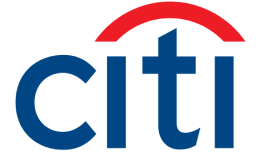Tech Skill
Linux Skills
All about Linux
Linux is a Unix-like operating system kernel that serves as the core component of various Linux distributions, or “distros.” These distributions package the Linux kernel with additional software and utilities to create complete operating systems tailored for different use cases and environments. Popular Linux distributions include Ubuntu, Debian, CentOS, Fedora, and Arch Linux, each offering a unique set of features, package management systems, and community support.
What to use Linux for
Here are some key applications of Linux:
- Software Development: Linux is widely used for software development, providing developers with a stable and customizable environment for writing, compiling, and testing code. Linux offers native support for popular programming languages, development tools, and libraries, making it an ideal platform for building applications, websites, and software products.
- System Administration: Linux is widely used for system administration, offering sysadmins powerful tools and utilities for managing servers, networks, and infrastructure. Linux provides robust security features, remote administration capabilities, and automation tools such as shell scripting and cron jobs, enabling sysadmins to configure, monitor, and maintain systems efficiently.
- Web Hosting and Servers: Linux is the dominant platform for web hosting and server deployments, powering millions of websites, web applications, and cloud services. Linux-based servers offer high performance, reliability, and scalability, with support for popular server software such as Apache, Nginx, MySQL, and PostgreSQL, as well as containerization and virtualization technologies like Docker and KVM.
- Embedded Systems and IoT Devices: Linux is widely used in embedded systems and Internet of Things (IoT) devices, providing a lightweight and customizable operating system for devices with limited resources. Linux-based embedded platforms offer support for a wide range of hardware architectures and peripherals, making them suitable for a variety of IoT applications, from smart home devices to industrial automation systems.
Companies of all sizes use Hired to find engineers with Linux skills
What is a Linux Developer?A Linux developer is a software developer who specializes in developing applications and software solutions for the Linux platform.
Here’s what it means to be a Linux developer:
- Proficiency in Linux: Linux developers are proficient in using and administering Linux-based operating systems, including installation, configuration, and management tasks. They are familiar with the Linux command-line interface (CLI), shell scripting, file system navigation, package management, and system administration tasks.
- Knowledge of Programming Languages: Linux developers have knowledge of programming languages commonly used for Linux application development, such as C, C++, Python, Java, and Shell scripting. They understand how to write portable and efficient code that runs smoothly on Linux systems and integrates seamlessly with system libraries and APIs.
- Understanding of Linux Internals: Linux developers have a solid understanding of the Linux kernel and operating system internals, including process management, memory management, file systems, networking, and device drivers. They understand how the Linux kernel interacts with hardware and software components to provide a stable and secure computing environment.
- Experience with Development Tools: Linux developers are experienced in using development tools and utilities for building, debugging, and testing software on Linux systems. They are familiar with integrated development environments (IDEs), text editors, version control systems (e.g., Git), build automation tools (e.g., Make, CMake), and debugging tools (e.g., GDB).
- Knowledge of Software Development Practices: Linux developers are knowledgeable about software development practices and methodologies, including agile development, test-driven development (TDD), and continuous integration/continuous deployment (CI/CD). They understand how to write clean, modular, and maintainable code, and collaborate effectively in development teams.
- Containerization and Orchestration: Linux developers need to have knowledge of containerization and orchestration technologies such as Docker, Kubernetes, and Podman. They should be able to build, deploy, and manage containerized applications on Linux systems, and integrate with container orchestration platforms to automate deployment workflows.
- Cloud Computing: With the increasing adoption of cloud computing, Linux developers need to have knowledge of cloud platforms such as AWS, Azure, and Google Cloud Platform. They should be able to deploy and manage Linux-based applications in cloud environments, leverage cloud services and APIs, and optimize performance, scalability, and cost efficiency.
- Security and Compliance: Linux developers need to have knowledge of security best practices and compliance requirements for Linux-based systems and applications. They should be able to implement security controls, perform vulnerability assessments, and enforce security policies to protect sensitive data and ensure regulatory compliance.
- Infrastructure as Code (IaC): Linux developers need to have knowledge of infrastructure as code (IaC) principles and practices, including tools such as Terraform, Ansible, and Puppet. They should be able to define infrastructure requirements, provision and configure resources automatically, and manage infrastructure changes as code to support development and deployment workflows.
- DevOps Practices: Linux developers need to have knowledge of DevOps practices and tools for integrating development and operations tasks seamlessly. They should be able to automate build, test, and deployment processes, collaborate effectively in cross-functional teams, and drive continuous improvement and innovation in software development and delivery.
- Edge Computing: With the growing trend towards edge computing, Linux developers need to have knowledge of edge computing architectures and technologies. They should be able to develop and deploy Linux-based applications at the edge, optimize performance and resource utilization, and ensure reliability and availability in distributed and decentralized environments.
Linux resources
Check out our resources to continue sharpening your Linux skills.
Hired profiles help developers showcase their top tech skills
After passing Hired skills assessments, candidates may showcase their skills to employers. They can opt to present an ‘Assessments’ badge on their profile. Candidates may take various assessments including Programming Skills, Full Stack, Backend, Frontend, iOS, Android, Debugging, DevOps Generalist, and DevOps AWS.
Find Linux jobs on Hired.
Hiring Linux developers can bring numerous benefits to your organization:
- Versatility and Flexibility: Linux developers bring versatility and flexibility to software development projects, with expertise in building and deploying applications for Linux-based environments. They can work across different platforms, architectures, and technologies, and adapt quickly to changing requirements and environments.
- Stability and Reliability: Linux developers help organizations achieve stability and reliability in software development and deployment by leveraging the robustness and resilience of the Linux operating system. They understand how to build scalable, secure, and high-performance applications that meet the needs of modern computing environments.
- Cost-Effectiveness: Linux developers offer cost-effective solutions for software development and deployment, leveraging the open-source nature of the Linux operating system and ecosystem. They can build and deploy applications using free and open-source tools, libraries, and frameworks, and optimize resource utilization and cost efficiency in production environments.
Looking for candidates skilled in Linux? Technical assessments are a multi-pronged solution. They allow you to streamline the hiring process and reduce bias with tech skill-focused benchmarks.
Hired Assessments offers a library of hundreds of questions and customizable coding challenge campaigns tailored to technical preferences. Centralize and standardize your evaluation process as you surface top talent with specific, hard-to-find skills.
See how Mastercard and Axon used Hired Assessments to vet top candidates.
Resources you’ll love

4 Offer Stage Strategies to Win Top Candidates
Getting a candidate to the offer stage You’ve run a seamless process. Your hiring manager and...

How to Manage Inbound Applications & Rethink Talent Sourcing Analytics: Tips for Recruiters
Experiencing an overwhelming volume of inbound applications? In a new episode of Talk Talent to...

AI Leads to More Human-Centric Recruitment & Hiring (What!?)
Leading the way to streamlined & people-focused processes AI is more than just an ongoing...


